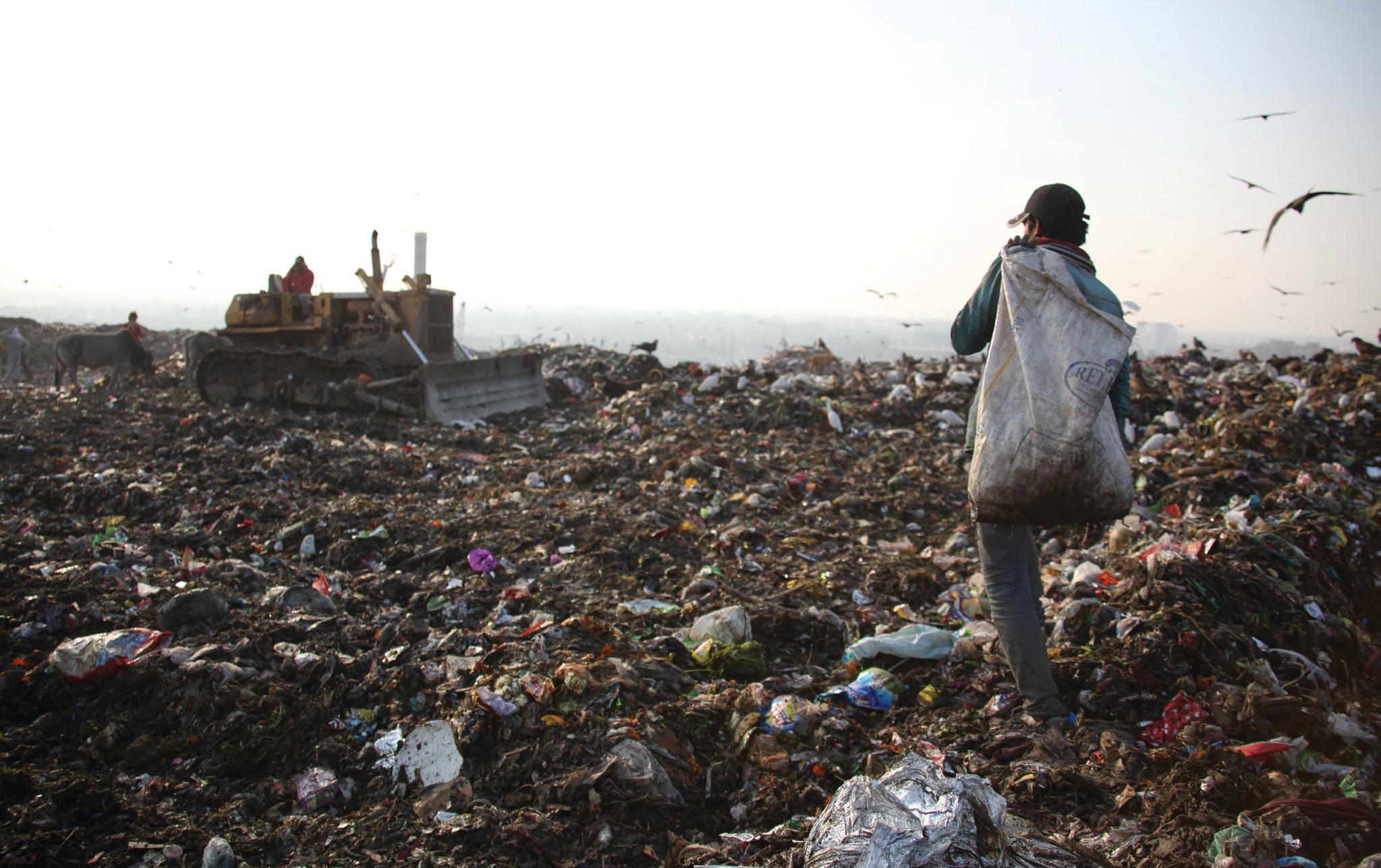Denemek ALTIN - Özgür
From Waste to Worth
TerraGreen
|March 2025
Partnerships Addressing Marine Litter
-

Marine litter and climate change are closely connected as plastics contribute to greenhouse gas emissions and stronger storms worsen littering. A pilot project in Goa, funded by the EU and led by TERI, demonstrates a circular economy approach by involving local fishermen in the collection and upcycling of discarded fishing nets. Dr Ashwini Panandiker details how the initiative is offering an innovative solution to reduce marine litter while also providing economic opportunities.
Marine litter and climate change are interconnected global challenges. Plastics discarded into the ocean degrade over time, releasing greenhouse gases such as methane and ethylene, which intensify global warming. Conversely, the effects of climate change, including stronger storms and rising sea levels, exacerbate marine litter by washing debris into waterways. This vicious cycle harms marine biodiversity and reduces the ability of ecosystems like mangroves and coral reefs to sequester carbon effectively, further accelerating climate change.
Collaboration Key to Tackle the Menace
Bu hikaye TerraGreen dergisinin March 2025 baskısından alınmıştır.
Binlerce özenle seçilmiş premium hikayeye ve 9.000'den fazla dergi ve gazeteye erişmek için Magzter GOLD'a abone olun.
Zaten abone misiniz? Oturum aç
TerraGreen'den DAHA FAZLA HİKAYE

TerraGreen
Pollution Rises in Bengaluru Lakes Post Monsoon: Study
A new lake health study, covering three major water bodies in Bengaluru-Ulsoor, Doddabommasandra and Shivapura-has revealed dangerous levels of pollution and a clear link between rapid urbanization and deteriorating water quality.
1 min
November 2025

TerraGreen
Seven-month Fishing Ban Along Three River Mouths in Odisha for Olive Ridley Nesting
In a bid to ensure safe and harmonious mass nesting of Olive Ridley turtles, Odisha has imposed a seven-month fishing ban from November, 2025 to May 31, 2026 at three river mouths along the coastline.
1 min
November 2025

TerraGreen
A New Track Record
Formula 1, long defined by speed, spectacle, and cutting-edge engineering, is now racing towards a different kind of victory—sustainability.
4 mins
November 2025

TerraGreen
Extreme Floods are Slashing Global Rice Yields Faster than Expected
WMO Report Highlights Increasingly Erratic Water Cycle
3 mins
November 2025

TerraGreen
Renewable Energy Adoption and Corporate Sustainability
Future of Responsible Enterprise
5 mins
November 2025

TerraGreen
Nature-based Solutions for Delhi's Pollution Crisis
Delhi's annual struggle with toxic air has become an unfortunate ritual. Each winter, the Air Quality Index (AQI) spikes to hazardous levels often above 300, amid school shut downs, masks returning, and public outrage-only to fade until the next smog season.
1 min
November 2025

TerraGreen
Echoes of Love
Why the Forest Can't Live Without Its Hornbills
4 mins
November 2025

TerraGreen
Your Pumpkin Might Be Hiding a Toxic Secret
Pumpkins, squash, zucchini, and other members of the gourd family have a surprising trait-they can take up pollutants from the soil and store them in their edible parts.
1 min
November 2025

TerraGreen
Forests on the Fence
Can Uttarakhand's Van Panchayats Take Root Again?
6 mins
November 2025

TerraGreen
Sacred Tank, Sinking City The Urban Threat to 'Mini-Kashi'
Nestled amid the urban sprawl of Malabar Hill, Mumbai's Banganga Tank stands as a living relic where myth, memory, and modernity intersect.
4 mins
November 2025
Listen
Translate
Change font size
